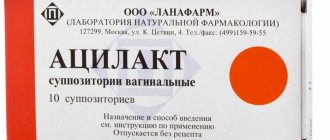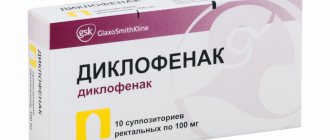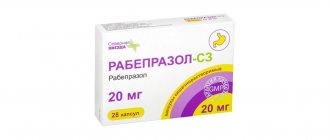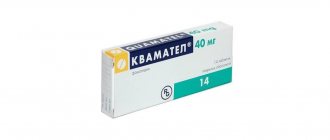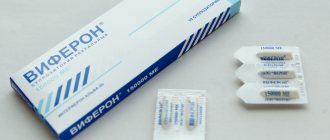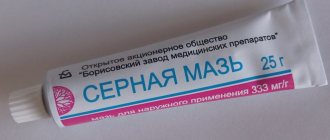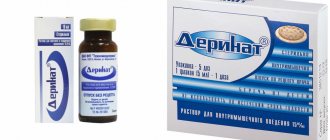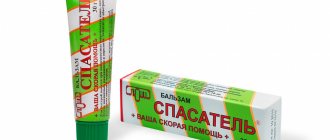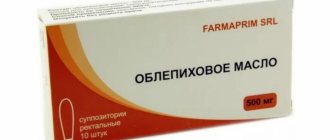Beneficial bacteria constantly live inside the vagina, which form the internal environment and provide local immunity. Under the influence of infectious processes, hormonal imbalances, as well as after childbirth or operations, the use of antibiotics, the microflora is disrupted. Balance can be restored in a few days or weeks. One of the effective remedies is Acylact suppositories.
Pharmacodynamics and pharmacokinetics
This preparation contains live acidophilus lactobacilli with antagonistic activity, namely strains of Lactobacillus acidophilus 100ash, NK1 and K3Sh24. Lactobacilli in the preparation are preliminarily lyophilized and supplemented with sucrose-gelatin-milk medium. Acylact is characterized by high antagonistic activity against pathogenic and opportunistic microorganisms, for example, staphylococci, Proteus and enteropathogenic Escherichia coli. During the treatment, restoration of bacteriocenosis of the female genitalia was noted, metabolism to the formation of lactic acid was improved, and the pH of the vaginal environment was normalized. As you know, an acidic vaginal environment is considered unfavorable for the emergence of acid-sensitive pathogenic microorganisms, so the drug helps to increase local immunity.
Data on the pharmacokinetics of Acylact are not provided.
Composition and description of the drug "Acilact"
"Acylact" is a drug that is available in the form of powder, lyophilisate, tablets and vaginal suppositories. The composition includes live bacteria - lactobacilli acidophilus and additional (auxiliary) components.
The product has a probiotic effect. It normalizes the vital activity of bacterial colonies that constantly live in the female genitalia, ensures normal metabolism of glycogen with the formation of the final product - lactic acid.
The drug also allows you to normalize the acidity level (pH) of the internal environment of the genital organs. The action of lactobacilli leads to a decrease in pH - the environment becomes acidic, which leads to the death of pathogenic bacteria. Thanks to this, local immunity increases, the body better resists infections.
Important!
Candles should be stored in the refrigerator at a temperature range of 2-10 degrees. Access for children is prohibited. The shelf life is 1 year - the drug cannot be used after this time.
Indications for use
Acilact tablets and suppositories, like other forms of the drug, are prescribed for combination treatment:
- various gynecological diseases accompanied by disruption of the normal state of the vaginal microflora;
- nonspecific colpitis , vaginal dysbiosis ;
- subacute and chronic forms of inflammatory diseases of the female genital organs and appendages, in order to restore the microflora ;
- hormone-dependent and atrophic colpitis and so on.
The drug is also recommended for use as a prevention of the development of vaginal dysbiosis or infectious complications as a result of gynecological operations and during childbirth.
In the treatment of serious diseases, the drug can be prescribed immediately in the form of tablets and, for example, suppositories.
ENZYME
Trade name: Acylact;
International nonproprietary name: Lactobacillus acidophilus;
Dosage form: vaginal suppositories.
Acylact, vaginal suppositories is a microbial mass of living, antagonistically active acidophilic lactobacilli of the Lactobacillus acidophilus 100ash, NK1, K3Sh24 strains, freeze-dried in a cultivation medium with the addition of a protective sucrose-gelatin-milk medium and formed into medical suppositories.
Composition: One suppository contains at least 107 live acidophilic lactobacilli (1 dose), excipients: solid petroleum paraffin, T-2 emulsifier, solid fat. Suppository weight - 1.3 g.
Description: Suppositories are yellowish-gray or light beige in color, torpedo-shaped. Inhomogeneity of color in the form of inclusions or marbling is allowed.
Biological and immunological properties: Live lactobacilli acidophilus have high antagonistic activity against pathogenic and opportunistic microbes, including staphylococci, enteropathogenic Escherichia coli, Proteus, which determines the normalizing effect of the drug in disorders of bacteriocenosis of the female genitalia. Lactobacilli metabilize glycogen in the vaginal epithelium to lactic acid, which maintains the vaginal pH at 3.8-4.02. A high concentration of lactic acid creates unfavorable conditions for the life of acid-sensitive pathogenic and opportunistic bacteria. By acidifying the genital mucosa, lactobacilli participate in the formation of an environmental barrier and ensure resistance of the genital mucosa to foreign microflora.
INDICATIONS FOR USE:
Treatment of adult patients with vaginal dysbiosis and nonspecific inflammatory processes of the vagina.
nonspecific colpitis (not associated with gonococcal, trichomonas, candidiasis and other specific infections). Prescribed as an independent remedy or after completing a course of antibacterial therapy;
vaginal dysbiosis, including bacterial vaginosis (gardnerellosis). Prescribed as an independent remedy or in complex therapy;
subacute and chronic stages of inflammatory processes in the female genital area. Prescribed after completion of a course of antibacterial therapy for the purpose of rehabilitation;
hormonally dependent senile and other colpitis. Prescribed as an independent remedy against the background of specific hormonal therapy;
preparation for planned gynecological operations in order to prevent postoperative complications;
prenatal preparation of pregnant women at risk for the development of inflammatory diseases for the purpose of prevention and treatment of vaginal dysbacteriosis;
as an adjuvant in the treatment of sexually transmitted diseases: gonorrhea, urogenital chlamydia, urogenital herpes, etc. The drug is used to restore normal microflora and colonization of the vagina with lactobacilli in combination and after specific antimicrobial, antiviral and immunomodulatory therapy. The combined use of suppositories and oral forms of acylact is recommended.
CONTRAINDICATIONS AND SIDE EFFECTS:
- It is not recommended for use for vulvovaginal candidiasis.
- No side effects were identified.
METHOD OF APPLICATION AND DOSAGE:
Before intravaginal administration, remove the packaging from the suppository.
Dysbacteriosis of the vagina:
- 1 suppository 2 times a day for 5-10 days.
Hydrogen cyanide vaginitis of hormonal nature:
- 1 suppository 2 times a day for 5-10 days.
In case of violation of the purity of vaginal secretions in pregnant women up to the III-IV degree:
- 1 suppository 1-2 times a day for 5-10 days or more, under the control of restoration of the purity of vaginal secretions to the I-II degree and the disappearance of clinical symptoms.
Prevention of purulent-septic complications during planned gynecological operations:
- 1 suppository 1-2 times a day for 10 days. If necessary, the course is repeated for 3-4 months with an interval of 10-20 days.
INTERACTIONS WITH OTHER MEDICINES:
The use of suppositories can be combined with the simultaneous administration of antibacterial, antiviral and immunomodulatory drugs. However, it is not recommended to combine it with simultaneous local administration of antibacterial drugs.
RELEASE FORM:
5 suppositories in a blister pack. 2 packages in a cardboard box with instructions for use.
CONDITIONS FOR DISCHARGE FROM PHARMACIES:
Dispensed without a doctor's prescription.
BEST BEFORE DATE:
1 year.
The drug is not suitable for use:
A drug whose packaging has been damaged.
The drug is not labeled.
A drug with altered physical properties (change in color, appearance of a rancid odor).
The drug has expired.
STORAGE AND TRANSPORTATION:
Store out of the reach of children at a temperature of 2 to 8°C
Transport at temperatures from 2 to 8°C
Instructions for use of Acylact (Method and dosage)
Atsilakt suppositories instructions for use recommend intravaginal use. The packaging material should be removed from them only before administration. Suppositories should be inserted while lying on your back, as deep into the vagina as possible. It is recommended to thoroughly wash your hands and external genitalia beforehand. Tablets, like the drug solution, can be used additionally. The solution is prepared according to the instructions supplied with the preparation.
The duration of therapy, as well as the dosage of Acylact, is determined by the attending physician. The average daily dosage is 1-2 suppositories with a duration of use of 10 days. If necessary, the therapeutic course can be repeated after 10-20 days.
Acilact
Depending on the disease, acylact is used orally, locally and intravaginally.
Dissolve the contents of the bottle with boiled water at room temperature at the rate of 5 ml (teaspoon) of water per 1 dose of the drug.
Dissolution is carried out as follows: pour the required amount of water into a glass (in accordance with the number of doses indicated on the bottle); open the bottle by removing the cap and stopper; transfer a small amount of water from the glass into the bottle; after dissolution (the drug dissolves in no more than 5 minutes to form a homogeneous suspension of beige or whitish-gray color), transfer the contents of the bottle into the same glass and mix. One teaspoon of the drug dissolved in this way is 1 dose. The dissolved drug cannot be stored.
The daily dose and duration of treatment is determined by the doctor depending on the clinical form of the disease and the severity of dysbacteriosis.
For diseases of the oral mucosa, acylact is used after meals in the form of an aqueous suspension for rinsing.
For glossitis, 5 doses are prescribed 2-3 times a day, the course of treatment is 14-15 days. For recurrent aphthous stomatitis and necrotizing ulcerative gingivitis, treatment is carried out according to the same scheme in two courses with a break of 7 days.
For pathological processes in the oral cavity caused by systemic diseases (lichen planus, exudative erythema multiforme, Sjögren's disease), 10 doses per day in 4 divided doses are prescribed in two courses of 14-15 days each with a break of 7 days.
Patients with intestinal disorders under the age of 6 months are prescribed 5 doses per day, preferably in 2 doses, children over 6 months and adults - 5 doses 2-3 times a day 30-40 minutes before meals.
For acute inflammatory processes of the intestines, the course of treatment is 7-8 days, for protracted and recurrent forms of the disease - 14-21 days.
For disturbances of the normal intestinal microflora in children with atopic dermatitis, 5 doses per day in courses of 20-25 days, with breaks of 1.5 - 2 months. The number of courses is determined by the condition of the skin and the normalization of intestinal microflora.
If necessary, the doctor prescribes repeated courses.
For inflammatory processes of the female genitalia, 5 doses are prescribed intravaginally, 2 times a day, by irrigation with an aqueous suspension of the drug or by inserting a tampon soaked in it. In order to prevent purulent-septic complications, use 5 doses 1 time per day for 5-7 days before the intended operation or delivery.
Acylact during pregnancy
All dosage forms of this drug can be used by pregnant women, since it contains lactobacilli that do not cause harm to the body. During this period, many women are concerned about the problem of vaginal dysbiosis, and suppositories during pregnancy help normalize the condition.
In addition, with the help of this remedy, various forms of dysbiosis , microbial balance is restored, disturbed by the use of antibiotics or hormonal changes. But it is important to remember that Acilact is not suitable for treating thrush .
Analogues of Acylact
Level 4 ATC code matches:
Iodoxide
Furazolidone
Kolposeptin
Lactonorm
Hexicon
Ecofemin
Lactozhinal
Depanthol
McMirror
Dafnedjin
The main structural analogues of the drug: Biobakton and Lactobacterin .
Reviews about Acilact
In most cases, you can find reviews about Acilact on forums dedicated to women's health, or more precisely to the treatment of various diseases of the reproductive system. At the same time, many women try to find out from other participants in discussions or doctors online the causes and names of disorders, methods of treatment, and so on. They also often ask what Acylact suppositories help best and how to use them correctly?
Of course, specialists try to answer patients’ questions, but it is almost impossible to accurately diagnose the disease, as well as prescribe proper treatment. At the same time, reviews from doctors about Acylact suppositories are very ambiguous. For example, some claim that this drug may cause candidiasis , while others report that this is unlikely. The question of how to use suppositories during pregnancy, how effective it is and whether it can cause complications is no less actively discussed.
Although it is believed that this drug does not contain substances harmful to the body, it is not recommended to use it without a doctor’s prescription. The fact is that diagnosing “dysbacteriosis” requires preliminary research. At the same time, they check whether there are pathogenic fungi in the body and how active they are. Therefore, this drug is not used for thrush.
In general, there are many ways to restore normal vaginal microflora, for example, through the intestines. Thanks to this, it is possible to avoid secondary infection, and the recovery process is more efficient.
Contraindications and side effects
There are not many contraindications for use. The product should not be used if you have diagnosed vaginal candidiasis. In these cases, a separate course of treatment is first carried out, after which the doctor may prescribe Acylact suppositories to restore normal vaginal microflora.
Also, the drug is not used in the presence of individual intolerance to the active or auxiliary components. If allergic reactions occur, treatment is stopped. It is recommended to consult a doctor - you may need to change therapy.
No side effects have been reported to date. Suppositories are safe when used in certain dosages specified in the instructions. No cases of overdose have been identified either.
Acylact price, where to buy
The price of Acylact in tablets varies between 130-170 rubles.
The price of Acylact suppositories in Russian pharmacies is approximately 120 rubles.
- Online pharmacies in RussiaRussia
ZdravCity
- Acylact vaginal suppositories 10 pcs.
Vitapharma JSC Vitapharma RUR 302 order - Acylact vaginal suppositories 10 pcs. Lanafarm LLC Lanafarm
RUB 365 order
